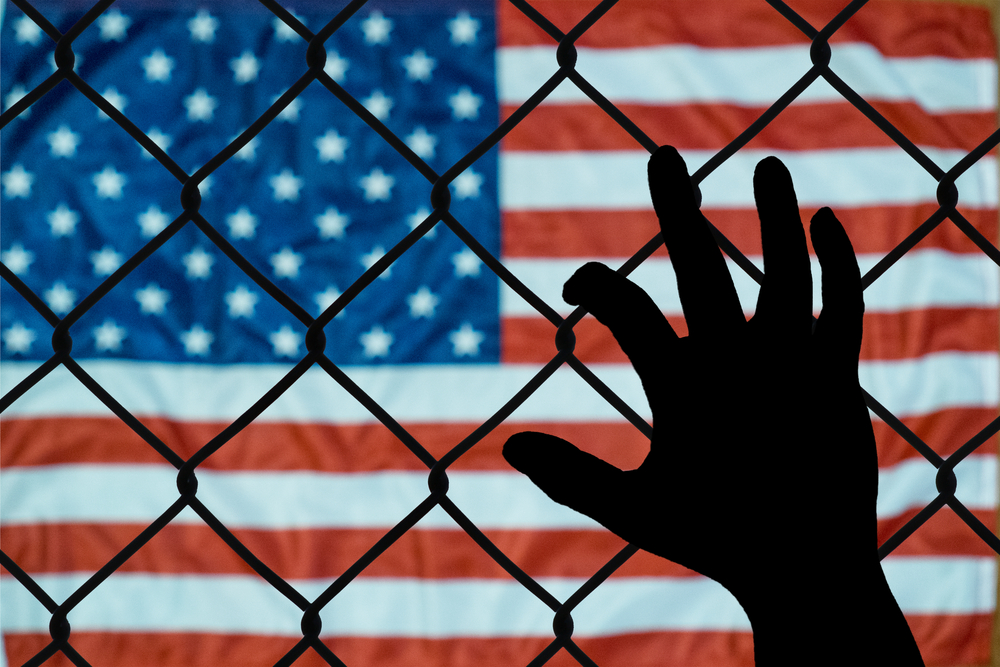Immigration
Haitians face hurdles after protected status renewal delays

The Trump administration announced in November that Haitians living under the temporary status would have until July 2019 to get their affairs in order and return home.(Shutterstock)
BOSTON— Thousands of Haitian immigrants living in the U.S. legally will face employment and travel hurdles because President Donald Trump’s administration delayed the process of re-registering those with temporary protected status, Haitian community leaders and immigrant activists say.
U.S. Citizenship and Immigration Services released details Thursday about the next steps for the 60,000 Haitians with the special status. Officials said the delays had to do with working out how Haitians will be able to prove their employment status until they must leave the country in July 2019.
But Haitian immigrants and advocates complained Thursday’s measures wouldn’t help thousands of Haitians who still hold immigration documents showing their legal and work status expiring Monday. And they were upset by another announcement Thursday from the Department of Homeland Security that people from Haiti, Belize and Samoa were no longer eligible to apply for visas for seasonal and farmworker jobs. The department’s explanation was that those nations had a high rate of fraud, abuse and people overstaying their visa’s time limits.
Between October 2015 and September 2016, 65 Haitians were allowed into the U.S. with seasonal farmworker visas, according to government data. The number of Haitians who came into the country with nonagricultural visas was not disclosed.
Some wondered in light of the president’s recent remarks about Haiti if the bureaucratic slowdown and the sudden ineligibility of Haitians for guest worker visas were deliberate. Other nationalities eligible for protected status have received more lead time to re-register, while Haitians have been left waiting.
“It’s racism. They don’t want to give us papers anymore. He doesn’t like Haitians, he doesn’t like Africans,” Edelyne Jean, a 35-year-old nursing assistant in Coral Springs, Florida, said of Trump.
As a result of the delayed re-registration process, Haitian workers like Jean will be left at the mercy of employers, who could simply choose to let them go, or hire someone else rather than wait for new documents that could take months to arrive, said the Rev. Dieufort Fleurissaint, chairman of Haitian Americans United, a Boston-based community group.
“They’re putting a lot of people in a very, very difficult situation,” he says of federal officials. “Employers are not going to take time to understand this. People will be in limbo come Monday.”
Haitians were granted temporary protected status to live and work in the U.S. after a devastating earthquake struck their Caribbean homeland in 2010. The status has been renewed a number of times over the past seven years, to the chagrin of critics who say the humanitarian measure was never meant to allow immigrants to establish roots in the U.S.
The Trump administration announced in November that Haitians living under the temporary status would have until July 2019 to get their affairs in order and return home.
The problem is that officials didn’t tell people with that status how to go about renewing it. Meanwhile, the administration issued renewal guidelines for Nicaraguans and Hondurans in mid-December, well before their temporary status expired.
Thursday’s announcement automatically extends the work permits for Haitians on temporary protected status through July. But it also acknowledges “not all re-registrants will receive” new work authorization cards before the current ones expire on Monday.
It says Haitian workers will be able to simply show employers the agency’s Thursday notice as proof their work status is still valid until the new documents arrive.
The delays and convoluted registration process “reinforces the message” that Haitians aren’t welcome in America, says Geralde Gabeau, a Haitian immigrant who heads the Immigrant Family Services Institute, a Boston-based non-profit that provides academic support to immigrant youths.
“It goes hand-in-hand with what the president said last week,” she says, referring to the closed-door meeting Trump held with U.S. senators during which he is said to have profanely disparaged African countries and asked why the U.S. would want more Haitians. “It’s not just words. It’s actions. They don’t want Haitians here, so they’re doing whatever they can to discourage them so that they go back to their country.”
At least in Boston, which has the nation’s third-largest Haitian community after Miami and New York, the delays have already led to job losses, Fleurissaint said. Some Haitians working as porters, janitors and food-service workers at Boston’s Logan International Airport were let go this summer because they didn’t receive new work permits before the most recent expiration date for temporary protected status, which was in July, he says.
And a woman in Massachusetts was warned by U.S. Citizenship and Immigration Services this week that she wouldn’t be able to re-enter the country if she attempted to attend her father’s funeral in Haiti, Gabeau said.
Haitians on temporary protected status could encounter other hurdles, such as renewing their driver’s licenses, says Sarang Sekhavat, director of federal policy at the Massachusetts Immigrant and Refugee Advocacy Coalition.
Haitian community leaders are gathering lawyers to assist families as problems arise.
“We’re going to be fighting back,” Gabeau says. “We will not stay silent. This is not acceptable.”





















